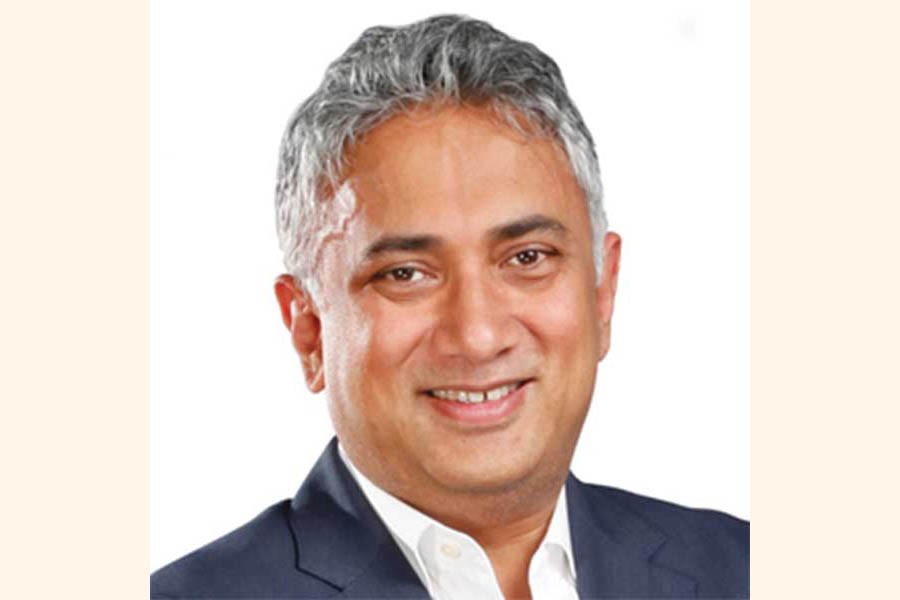Top network operator Grameenphone has unleashed innovative solutions to fend off challenges posed by coronavirus pandemic, the company's top executive says.
"This ongoing pandemic has created several challenges for all of us," said Yasir Azman, chief executive officer at Grameenphone.
"We've managed to overcome the initial discomfort and build further capacity to serve our customers better using innovative and modern solutions," he told the Financial Express in a recent interview.
For example, Grameenphone has focused on bringing in new affordable and accessible services and recreated organisational design to make working remotely easier during pandemic.
"We call it the 'new normal' ways of work as a tech company …," he said.
"Covid-19 forced us to do so; however, it sets the course towards the future, still bringing in innovation, what learning we take from this pandemic for us," he added.
Mr Azman was named chief executive officer of the country's largest telecom operator in January, making him the first Bangladeshi to catapult into the top position of the 22-year-old company.
Before taking up the new role, he had served the mobile telephony firm in various capacities, mostly recently its deputy CEO.
The company CEO laid emphasis on garnering the benefit of 'Digital Bangladesh' in the post Covid19 period, otherwise, "we will not be able to come back faster."
"We have seen the importance of connectivity for survival during this pandemic from the very beginning; this brings a greater sense of responsibility to meet the expectation of keeping the socio-economic machinery running on connectivity," he said.
He noted the telecom industry played a leading role as one of the ecosystem partners. "Covid-19 has leapfrogged us in this area, we need to step up to meet customers' new demand in many areas that we will see being digitalised much faster than its average pace; we shall need an entirely new set of skills and new employment scope."
He said the operators and regulators together need to see things through a different lens than ever to resolve issues and fast track solutions to the citizens.
"During this Covid-19 period, we have seen that working with regulators has a new dimension i.e., much agile, collaborative, and accessible to each other. It is possible to relook, rebuild together," he noted.
The telecom industry and digital services shall play a critical role in shaping up the post-Covid world, said Grameenphone top executive. "The world (post-Covid) will never be the same, and in many cases, it does not have to be. We shall have to rebuild many things from a scratch, learning from Covid-19," he said.
The GP boss, however, warned many sectors have lost and will lose their relevance in the new world during and the post-COVID.
"But many will get strengthened and even emerge," he added.
To re-skill population and create employment for millions in the local and global job market, the country must get prepared holistically and the telecom must play its role in the mix, he said.
GP has partnered with the authorities to help combat the pandemic.
Mr Azman said as a part of the company's Covid-19 response, the company has volunteered to support the nation through many initiatives.
Collaborations with DG Health, a2i, BTRC, Brac, World Health Organisation and Unicefare cases in point.
In these challenging times, Mr Azman said the industry needs a predictable regulatory environment, and all ecosystem players, policymakers, and regulators must come together to construct an atmosphere that will foster investment, innovation and competition.
He said indirect contribution to the national exchequer needs to look into while reforming tax and defining policies for this industry.
"Shift in looking into this very critical industry through a different lens is required today to rebuild our economy in the post-pandemic era … that has to start now," he said.
About slower growth in Grameenphone, he said multiple issues have contributed to this sluggish growth in acquiring subscribers.
He said slower subscribers' growth was connected to the number series availability, which has now been solved.
Mr Azman said they have been stating for a long time that the spectrum prices should be reasonable.
He said all the operators are heavily investing in equipment and managing network capacity.
"We can either manage this with an additional spectrum or import modern equipment," he said adding that the buying of modernised equipment will spur outflow of money from the country.
"If we can get a reasonable spectrum price, then the money stays in the country, we need to look at the bigger picture and focus on long-term goals," he said.
The company's top executive said the operator is now focusing on building a resilient 4G network countrywide and preparing for 5G in the future.
He said, "We need to understand 5G is not a standalone service from operators. It's the need for building an overall ecosystem, operators, services, platform all to come together into a synchronised play."
He said the existing pricing mechanism will not work in the 5G scenario.
"There are different global experiences as a reference; we need to see how to build the infrastructure; there is a need for entirely different numbers of sites in case of 5G rollout, which is much higher in number and smaller in size and closer to customers."
Grameenphone, majority controlled by Norwegian Telenor Group, started its journey more than two decades ago and got stock market listings in November 2009.
At 46.3 per cent shares, the network operator is a market leader with 74.26 million customers.


